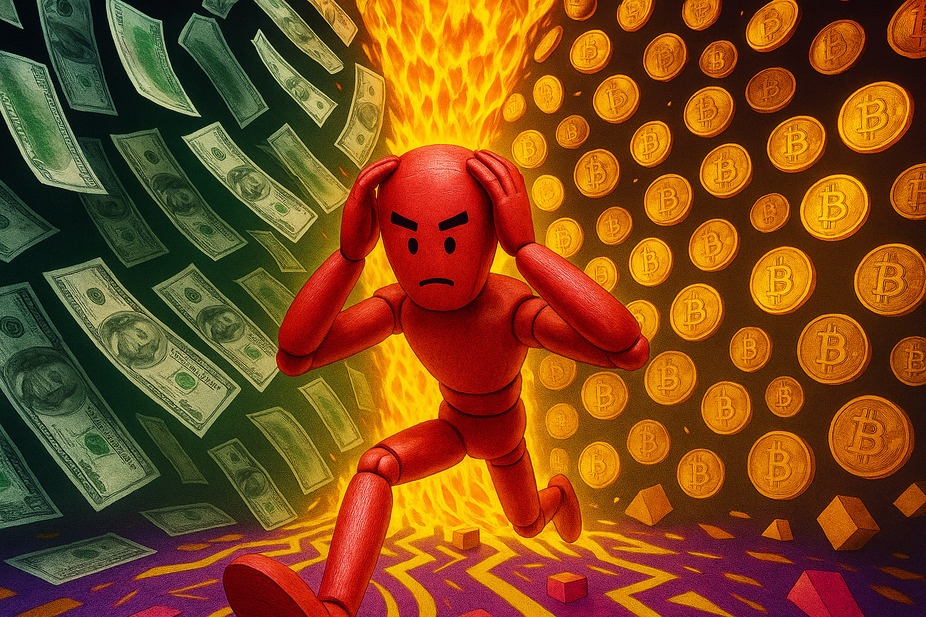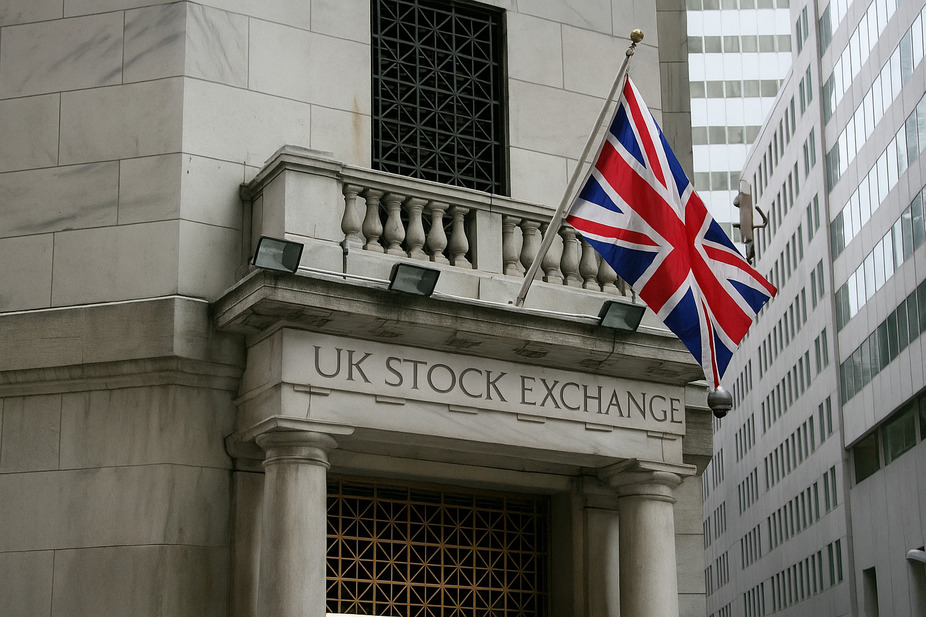Stocks or Bitcoin in the age of AI: Which one will stick around for the next 50 years?

Deciding whether to put your money into Bitcoin or traditional stocks isn’t as simple as it used to be. With AI shaking things up, how do you even begin to approach this? Let’s break down what the experts and data are telling us.
Can stocks keep up with AI’s pace?
For stocks to truly thrive in this new age of artificial intelligence, companies are going to have to be quick on their feet. They need to adapt, and fast, to the ever-changing tech landscape and economic demands. Think about it: AI is sparking a whole new wave of businesses in areas like robotics, biotech, and space exploration. Companies that can latch onto these advancements and innovate within them are much more likely to survive, and even flourish, as AI reshapes everything.
We should absolutely expect some turbulence as AI transforms jobs and markets. So, the next few years are really all about getting ready for this new technology.
Bitcoin’s big test: store of value and everyday cash
Bitcoin, on the other hand, needs to prove itself in two major ways. First, it has to solidify its role as a genuine “store of value” – something that holds its worth over time. Second, it needs to become a much more common way to actually pay for things. AI could actually be a big help here, especially by making Bitcoin faster and more efficient for transactions, solving some of its scalability challenges.
Because Bitcoin is decentralized, it’s not tied up in the messy internal politics or human errors that can sometimes derail traditional systems. Its main challenge is simply to stay cutting-edge with new tech to remain relevant.
Let’s be honest, trying to predict what will happen in the financial world 50 years from now is pretty much impossible. There are just too many outside factors! But by looking closely at AI today and how it’s impacting both Bitcoin and stocks, we can start to get a better idea of what might be a smarter bet for your investments. This isn’t about giving you a crystal ball, but rather helping you make more informed decisions about your financial future.
Stocks or Bitcoin: Who wins the AI revolution?
AI is set to supercharge innovation and efficiency across countless industries, sectors, and parts of our lives. It will undoubtedly make tech like Bitcoin more efficient and hopefully help it scale better. But what about good old stocks? Is their investment model becoming a relic of the past? Let’s dive in.
Why stocks still matter
The concept of a stock market isn’t new at all. It kicked off in Amsterdam back in 1602 with the Dutch East India Company. What started as a way to trade company shares quickly became the blueprint for how businesses raise money and how people invest. By the late 1600s, London had its own trading hubs, and New York caught on by 1792, spreading this model across the globe.
Stocks basically mean you own a tiny piece of a company. You buy and sell them on the stock market, and their value goes up and down based on how well the company is doing and the overall market conditions – including how well they adapt to new tech like AI.
Throughout history, companies that embraced technological progress have weathered economic downturns, wars, and all sorts of disruptions. It seems pretty likely that the same will hold true for companies that are betting big on AI today. Specifically, businesses that use AI for things like automation, crunching huge amounts of data, and creating fresh business models are the ones poised for success.
Historically, major market benchmarks like the S&P 500 have given investors about 7%-10% annual returns over decades, even after accounting for inflation. This index tracks 500 of the biggest publicly traded U.S. companies and is a common measuring stick for the entire stock market.
Interestingly, when you compare Bitcoin’s performance to the S&P 500, Bitcoin has delivered exceptionally higher returns, as you can see in various historical data.
Why Bitcoin is making its case
Bitcoin is a relatively new kid on the block, born in 2009 thanks to the mysterious Satoshi Nakamoto. It was introduced through a white paper that laid out a vision for a peer-to-peer electronic cash system built on blockchain technology.
But Bitcoin’s appeal goes far beyond just being an investment or a place to store value. Its proponents talk about a real monetary revolution, challenging established financial tools like gold itself. Its decentralized design means no single entity controls it, making it immune to the kind of inflation you often see in traditional money systems. Plus, with a hard cap of 21 million coins, its scarcity is a big draw for anyone looking to protect their wealth from currency debasement.
What’s more, blockchain’s transparency and security are a natural fit for AI’s need for reliable, verifiable data. Over the years, Bitcoin has really made a name for itself as both a store of value and an alternative currency, all while still chasing its original dream of becoming a widely used way to pay for things.
How AI changes the game for stocks
The next 50 years could actually pose a huge challenge to the very idea of the stock market as we know it. Analyst and investor Jordi Visser suggests that “artificial intelligence speeding up innovation cycles” could make big public companies less efficient as investment vehicles.
Stocks have been around forever, but AI-driven disruptions leave no room for complacency. Companies that can’t keep up risk getting left behind. This is especially true for tech titans like the FAANG stocks (Facebook, Amazon, Apple, Netflix, and Google). Even though they’re pouring money into AI, they’ll still need to constantly adapt and effectively integrate these rapid developments.
AI will also shake up the stock market itself. We’re talking about AI quickly analyzing mountains of data, predicting market movements, and automating investment decisions. This will lead to faster, more efficient operations and fundamentally change how investors approach trading and strategies. All in all, AI will probably supercharge corporate innovation, but it will also widen the gap between companies that adapt and those that stagnate.
How AI boosts Bitcoin
Visser actually sees Bitcoin as a better long-term investment, even comparing its potential longevity to gold, which has been around for thousands of years.
Beyond just being a store of value, Bitcoin is incredibly well-positioned in the future of finance. The powerful combination of AI and blockchain could really disrupt traditional financial systems, pulling more capital and more people into the digital economy.
We expect AI to significantly improve Bitcoin’s security and trading strategies, making crypto trading smarter through automated tools, better data analysis, and predictive market patterns. These changes could also make the entire system much more efficient.
Even Bitcoin mining could get a boost from AI, becoming more efficient and better at allocating resources. AI could predict the best times for mining activity to cut costs and maximize output. System maintenance would also improve, with AI detecting existing or upcoming failures, making Bitcoin more reliable overall.
Of course, Bitcoin isn’t without its challenges. It faces regulatory hurdles, scalability issues, and its famous volatility, which can put off investors who prefer safer, more predictable investments like stocks.
However, the coming together of AI and blockchain could kick off a whole new era for Bitcoin. It could lead to wider adoption by creating a more intuitive and secure ecosystem, giving it a real edge over any stocks that fail to adapt.
So, which one will make it for the next 50 years?
Honestly, looking 50 years into the future is a shot in the dark. Both Bitcoin and stocks have their unique strengths and weaknesses, and their ultimate fate depends on countless economic, technological, and societal shifts.
Stocks will likely stick around if companies can truly adapt to AI-driven economies. Investors can lower their risks by spreading their money across different investments, like index funds, which tend to be more secure. Companies in cutting-edge fields like robotics, biotech, space, and AI itself might perform better than those in less tech-focused areas.
There’s always talk about quantum computing and how it might affect Bitcoin’s security. Most experts agree it’s still theoretical and far off, but if it combines with AI, the impact could be good or bad depending on how the tech develops and how Bitcoin’s network responds. Centralization in mining could also become a worry if only a few groups get early access to super-advanced quantum-AI systems.
On the flip side, this combination could actually improve Bitcoin’s security and network optimization by making transactions faster, wallets more secure, or blockchain analytics smarter, all enhancing Bitcoin’s efficiency and user experience. As long as the Bitcoin community stays proactive with quantum-resistant upgrades, the overall effect could be positive.
As decentralized finance (DeFi) gains more traction in the investment world, Bitcoin is also sharpening its competitive edge against gold. By doing so, it’s emerging as a superior store of value and pushing traditional markets to consider shifting more funds into the digital financial realm.












